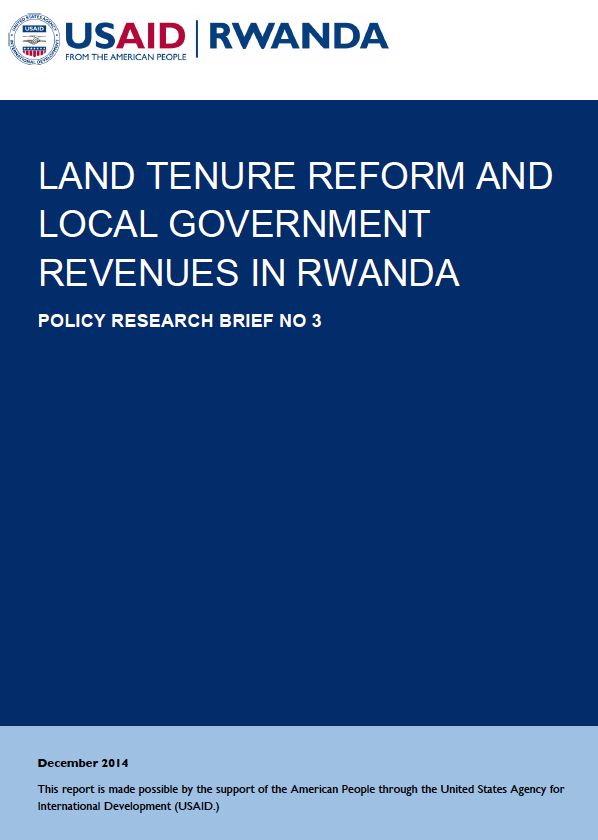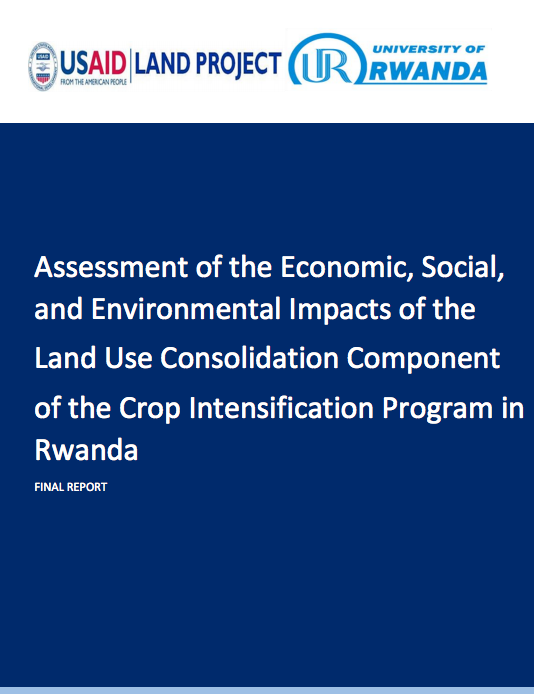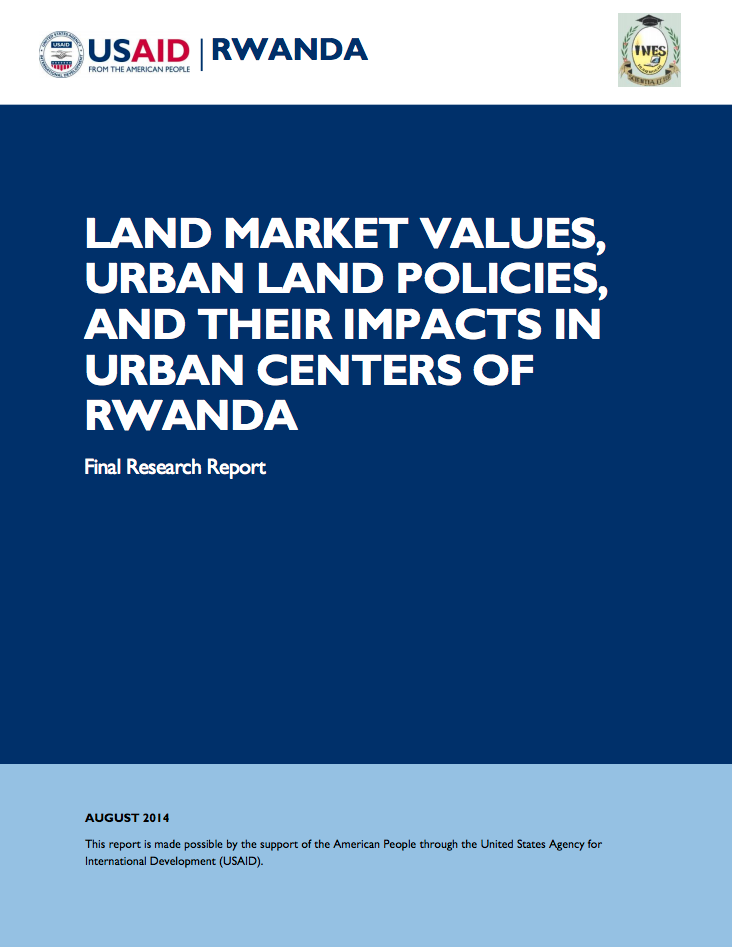The LAND Project is a five year program supported by the United States Agency for International Development (USAID). Its primary goal is strengthening the resilience of Rwandan citizens, communities and institutions and their ability to adapt to land-related economic, environmental and social changes.
Resilience is defined as “the ability to withstand or recover from difficult conditions.” It also comprises the ability of human and ecological systems to recover from shocks or difficult changes, and to transform to a better condition by responding flexibly and creatively to stress factors. In Rwanda, land tends to be one of the primary assets citizens rely on to buffer against difficult conditions and rapid change.
The project’s central objectives are twofold:
1.Increased capacity of local Rwandan institutions to generate high quality, evidence-based research on land-related issues that can be used by the Government, civil society organizations, and Rwandan citizens.
2. Increased understanding of land laws, policies, regulations, and legal judgments on land-related issues by GOR officials, local civil society organizations, research institutes and citizens.
Key outcomes of the project include:
- Holding annual National Land Research Agenda workshops to establish the research priorities of land sector stakeholders that the LAND Project will support. These workshops bring together multiple stakeholders from government, civil society and the research community;
- Supporting research on land-related issues through competitive awards to Rwandan research institutions, universities, and civil society organizations, and providing tailored capacity building assistance to improve research and advocacy capabilities;
- Offering training and other support to legal assistance providers to enhance their capacity to support women and vulnerable populations in understanding and realizing their land rights;
- Training local land authorities on the implementation of the land law and regulations.
- Carrying out research on critical land issues, including gendered land rights in practice, community rights to resources in and around protected areas, and expropriation.
- Managing a land-focused website to improve research, communications, and policy advocacy efforts that are focused on land, and to act as a vehicle for enhancing collaboration between actors working in the land sector;
- Providing organizational development support to civil society organizations supporting women’s land rights.
- Supporting innovative and coordinated communications approaches by civil society and government that enhance the knowledge of Rwandan citizens about research findings and their land rights.
Because the LAND Project is a five year endeavor, we are seeking an institution that has the interest, capacity, skills and resources to eventually take over hosting and maintenance of the website, ensuring it stays up-to-date and relevant to the land sector stakeholder community. If your organization is potentially interested in assuming management of this site, please contact us and tell us why you believe your institution would be an ideal candidate.
Members:
Resources
Displaying 21 - 25 of 149Land Tenure Reform and Local Government Revenues in Rwanda
This policy research brief on land tenure reform and government revenue aims primarily to examine the effects of land tenure reforms on land-based revenue and to provide policy recommendations that would build on existing efforts developed to ease the process of paying and collecting various land revenue. The research topic was suggested by land sector stakeholders among other topics during the LAND Project’s Year 3 Work Planning Meeting, and was endorsed by the Rwanda Natural Resources Authority and LAND Project as an important research area.
Final Report: Land Use Consolidation and Crop Intensification In Rwanda
The Land Use Consolidation Act (LUC) was introduced in 2008 and is an important
component of agricultural policy in Rwanda. As part of the Government of Rwanda’s
broader Crop Intensification Program (CIP), LUC entails participating farmers
consolidating aspects of their operations with neighboring farmers, while retaining
individual ownership of their parcels. LUC farmers also agree to grow a single priority
crop that has been identified by the Ministry of Agriculture (MINAGRI) as best suited to
Final Report: Land Use Consolidation and Crop Intensification In Rwanda
The Land Use Consolidation Act (LUC) was introduced in 2008 and is an important
component of agricultural policy in Rwanda. As part of the Government of Rwanda’s
broader Crop Intensification Program (CIP), LUC entails participating farmers
consolidating aspects of their operations with neighboring farmers, while retaining
individual ownership of their parcels. LUC farmers also agree to grow a single priority
crop that has been identified by the Ministry of Agriculture (MINAGRI) as best suited to
Land Market Values, Urban Land Policies, and their Impacts in Urban Centers of Rwanda
Research sought to evaluate the determinants of urban land markets, to analyse trends in urban land markets and values, and to assess impacts of urban land prices and policies. Concludes that if current land policies are not reformed there is a risk of increased negative impacts on the poor and more low-income people will be exposed to displacement to areas away from the urban centres which could cause social instability and an increase of informal settlements in suburbs.
Land Market Values, Urban Land Policies, and their Impacts in Urban Centers of Rwanda
The main objective of this research is to investigate land market values, urban land policies and their impacts on urban centers in Rwanda. Three (3) specific objectives can be distinguished namely: a) Evaluating the determinants of urban land markets; b) Analysis of trends in urban land markets and values; and c) Assessing impacts of urban land prices and policies.





